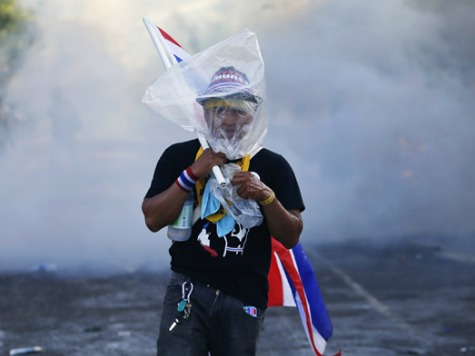(AFP) Thailand’s parliament has voted to ban commercial surrogacy after outrage erupted over the unregulated industry following a series scandals including the case of an Australian couple accused of abandoning a baby with Down’s syndrome.
A draft bill — which would see those caught profiting from surrogacy punished with up to ten years in prison — passed its first reading in the country’s military-stacked parliament on Thursday, legislators said Friday.
A copy of the bill seen by AFP also forbids “any middlemen or agencies… receiving any assets or benefits” through the surrogacy process.
Under its current wording it is unlikely foreigners will be able to use Thailand as a surrogacy destination with the same ease they once enjoyed.
The murky industry came under intense scrutiny this summer after a series of surrogacy scandals broke involving foreigners, prompting the promise of a crack down by Thailand’s military junta, which took power in a May coup.
Dozens, possibly hundreds, of foreign couples are thought to now be in limbo after entering into surrogacy arrangements through clinics in the kingdom.
Commercial surrogacy has always been officially banned by Thailand’s Medical Council, but until recently even top fertility clinics were believed to offer the service.
He added that the junta’s vow to clamp down on the industry had caused huge confusion among families looking for surrogates, pushing some families to opt for lesser known destinations such as Nepal and Mexico.
– Mother delighted by ban –
In August, a Thai mother who carried twin babies for an Australian couple accused them of abandoning a baby boy with Down’s syndrome while taking his healthy sister.
The couple have denied deliberately leaving the boy, called Gammy, with the surrogate mother — who was paid around $15,000 to carry the twins.
Speaking to AFP by telephone, Gammy’s mother said she was delighted the legislation had been passed.
Asked whether the ban would have an impact on Thai women wanting to become surrogates — a lucrative source of income for many poor women — she said: “They should find other jobs. Being a surrogate mother gives good money but it is risky because you are responsible for a life.”
Pattaramon is currently in the process of applying for Australian citizenship for Gammy.
In a separate case that also caused widespread concern inside Thailand, police believe a Japanese man fathered at least 15 babies with surrogate mothers for unknown motives.
A gay Australian couple were also stopped from leaving Thailand with a baby because they had incomplete documents.
The bill — which will return to the kingdom’s parliament in mid January for a second and third reading — does not outlaw surrogacies within families. A couple who cannot have a baby will be allowed to look for a relative to act as a surrogate.
If no-one can be found, they will then have to submit an application to a government agency who will look for a suitable surrogate.

COMMENTS
Please let us know if you're having issues with commenting.